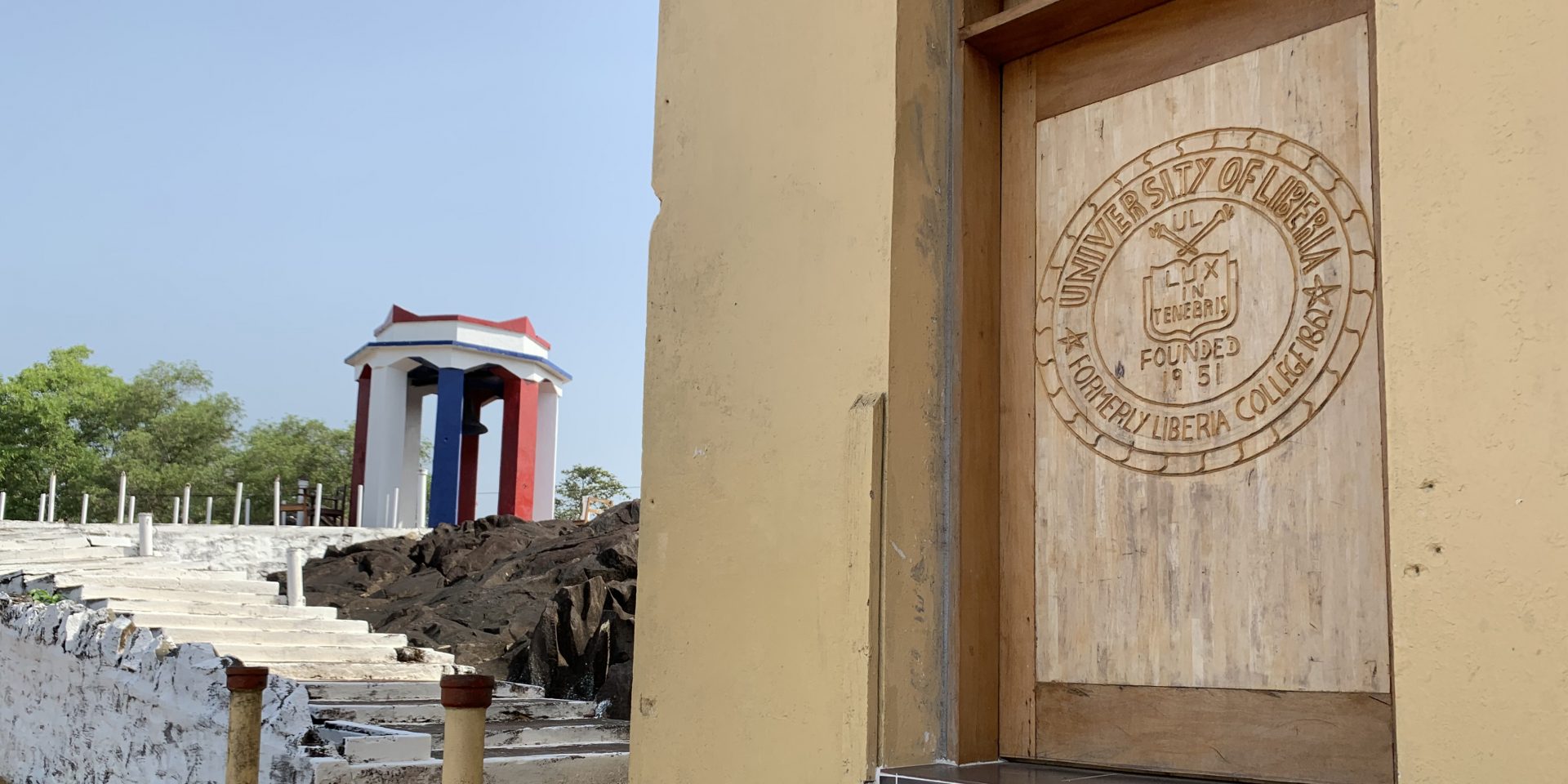
Digital Revolution: The Future of Higher Education in Liberia .
June 28, 2021After decades of instability, how can Liberia build a 21st-century learning environment for its higher education institutions?
The Liberian education system is recovering after decades of civil instability. The longstanding effects of two civil wars, exacerbated by school closures during the 2014-2015 Ebola outbreak, left Liberia with a fragile education system and even weaker information and communication technology (ICT) infrastructure. Although information is more accessible than ever, students and faculty at Liberia’s colleges and universities have limited opportunities to plug into today’s interconnected world. Internet at universities across the country is expensive and inconsistent, making it harder for students and faculty to collaborate, access educational resources, and keep up with modern institutions.
The USAID Digital Liberia and e-Government Capacity Building Activity project helped address these issues by improving connectivity and access to information across the country. Digital Liberia partnered with the University of Liberia to develop a comprehensive connectivity roadmap. The project procured and installed Wi-Fi equipment for more reliable internet access and linked four university campuses with a local intranet. The university’s chief information officer, Dr. Darren Wilkins, finds the changes encouraging. “The University of Liberia is undergoing a major transition, which includes digitization, automation of services, and connection to global resources for education and research,” he says. “To achieve this goal, ICT plays a crucial role. The Digital Liberia e-Government project’s assistance in building a campus network significantly impacts our efforts to achieve a 21st-century educational and research environment.”
This new IT infrastructure made it possible for the University of Liberia to become a founding member of the Liberia Research and Education Network (LRREN). Like similar networks worldwide, the LRREN will provide affordable, high-quality internet service for higher-education and research institutions across the country. LRREN membership enables students and faculty to access digital libraries, journals, and databases and collaborate with other national and regional networks. With the LRREN, universities in Liberia can enhance teaching and learning, paving the way for Liberia to excel in research and education.
In 2019, presidents from 11 colleges and universities in Liberia signed a memorandum of understanding, becoming the founding members of the LRREN. Digital Liberia supported the LRREN in establishing a governance structure, becoming a legal entity, and preparing campuses to connect to regional and national networks. As Dr. Wilkins states, “The establishment of the LRREN, of which the University of Liberia is a part, and which is a strategic asset of economic and social value to Liberia, could not have come at a better time for a nation working vehemently for socioeconomic development.” In 2021, the Liberia Telecommunications Corporation issued a five-year, special-use internet service provider license to the LRREN, paving the way for it to equip all member institutions with low-cost internet capacity.
Enhanced access to the internet is already paying off. In 2019, before the COVID-19 pandemic brought the world to a halt, Digital Liberia helped the University of Liberia expand online learning opportunities for students by launching a new online platform – UL Online. The project also assisted the university in training its professors on ways to integrate the e-learning platform Moodle into their teaching. This training allowed the university to pivot to 100 percent e-learning during the pandemic, with 13,000 of the university’s 20,000 students remaining enrolled.
Digital Liberia helped to lay the foundation to transform the student and faculty experience in Liberia. Through more accessible information for research and learning, Liberia can continue to build a strong educational foundation and connect with the rest of the world.
Initiatives such as the LRREN are a part of a larger strategy to build ICT capacity in Liberia and are key to the Liberian government’s e-Government strategy for strengthening ICT infrastructure and improving the availability of ICT services in the country. Advancing this strategy was one of the main objectives of Digital Liberia, which ended in 2020. The project supported Liberia in creating a sound national ICT platform to enhance cross-sectoral development and promote economic growth.
























